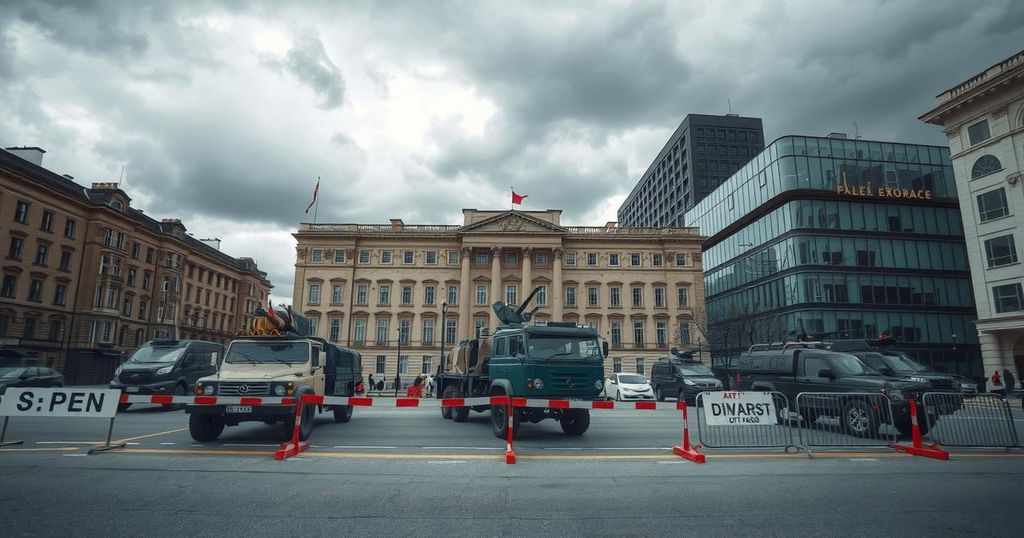Sudan’s capital Khartoum experiences intensified clashes as army reinforcements arrive to contest control from the Rapid Support Forces (RSF). The fighting has led to significant civilian casualties and widespread displacement, raising alarm over the ongoing humanitarian crisis. With the RSF holding strategic positions, the conflict is evolving, raising concerns regarding its future implications for Sudan.
The situation in Sudan continues to deteriorate as clashes intensify in the capital, Khartoum. Reinforcements from the government army have joined forces already stationed near the presidential palace, which remains under the control of the paramilitary group, the Rapid Support Forces (RSF). These developments indicate the army’s commitment to regain control of Khartoum amid ongoing violence.
Military spokesman General Nabil Abdullah announced the arrival of Armoured Corps units from the south, which have now integrated with existing General Command forces in Khartoum. This military offensive follows the soldiers’ recent success in retaking a hospital that had been under RSF control since the conflict’s inception in April 2023.
In a recent video address, RSF commander Mohamed Hamdan Daglo, also known as Hemedti, declared that his troops “will not leave the Republican Palace.” He further threatened to expand hostilities toward Blue Nile State and the eastern regions of Sudan, including Port Sudan, where the government has relocated its administrative capital.
Civilian casualties continue to rise, with reports confirming that RSF shelling in Omdurman resulted in the deaths of six individuals, including two children. Additionally, a Sunday attack left 36 civilians wounded, half of whom were minors. This violence underscores the dire consequences of the ongoing conflict, as bombing targets residential areas, injuring innocent civilians.
Since the conflict’s escalation, the death toll has reached tens of thousands nationally, displacing over 12 million and causing a humanitarian crisis of significant proportions. According to the United Nations, Khartoum alone has seen at least 3.5 million residents forced from their homes.
The war, ongoing for nearly two years, has effectively divided Sudan, with the RSF controlling much of Darfur and parts of the south, while the army holds the northern and eastern regions. Recent military advancements indicate that the army is close to reclaiming the entire capital of Khartoum.
The RSF’s formation of the Founding Alliance for Sudan, a coalition advocating for a parallel government, suggests that tensions may further escalate. Meanwhile, ongoing military operations in various regions, including North Kordofan and Blue Nile State, have resulted in additional civilian casualties and widespread displacement, exacerbating the already critical humanitarian situation.
The intensification of clashes in Sudan underscores the volatile situation in Khartoum as government forces seek to regain control from the RSF. Civilian casualties and widespread displacement highlight the severe humanitarian crisis unfolding across the nation, with frustrations mounting in regions affected by violence. Continued military developments suggest an uncertain future for Sudan, as the conflict further divides the nation and impacts millions of lives.
Original Source: www.rfi.fr






